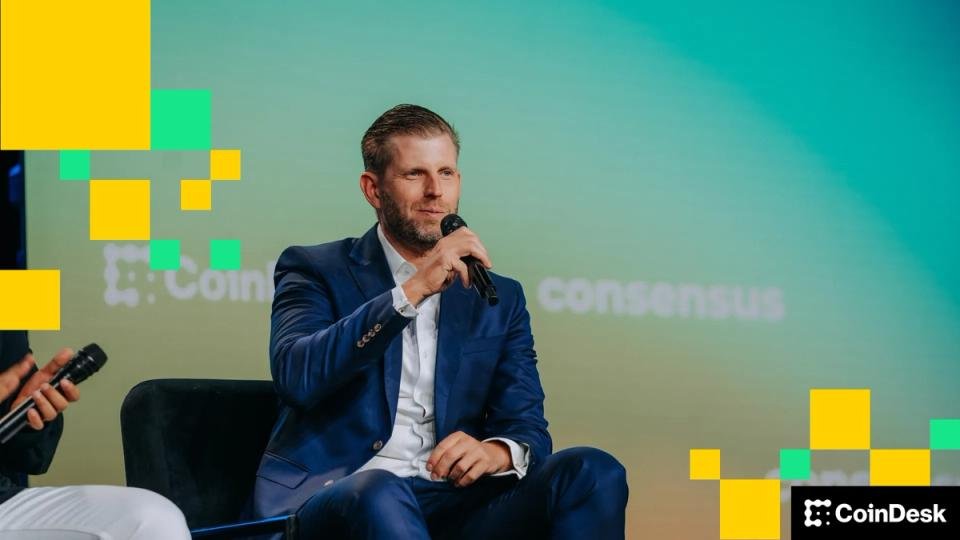Eric Trump and the Future of Real Estate Tokenization
Eric Trump, the son of former U.S. President Donald Trump, is venturing into the innovative realm of real estate tokenization, having co-founded the decentralized finance protocol World Liberty Financial (WLFI). In a recent interview set to air on CoinDesk TV, he unveiled plans for a groundbreaking project involving the tokenization of a building currently in development. This project aims to provide fractional ownership opportunities to a wider audience, allowing retail investors to partake in high-value real estate investments traditionally dominated by affluent investors.
Pioneering Real Estate Tokenization
Tokenization is a process that transforms physical assets, such as real estate, into digital tokens secured by blockchain technology. Each token represents a stake in the asset, enabling seamless trading and liquidity. In the context of Eric Trump’s project, it could mean turning his family’s real estate holdings into digital assets that anyone can invest in. During his interview, Trump expressed excitement about the potential of this venture, suggesting it could revolutionize the way average investors access premium real estate markets.
Breaking Down Investment Barriers
Trump’s tokenization initiative intends to democratize real estate investment. He mentioned that investors might contribute as little as $1,000 to gain partial ownership of a property. This approach stands in stark contrast to traditional financing routes that typically rely on banks like Deutsche Bank to fund large-scale developments. "If I decided to build a hotel in Washington, D.C. or in Dubai… Why can’t I go out to the masses?" Trump questioned, highlighting the project’s objective to dismantle barriers that have long prevented everyday investors from participating in significant real estate opportunities.
Advantages of Tokenization
The advantages of real estate tokenization extend beyond making investments more accessible. By leveraging blockchain technology, the initiative could enhance liquidity, allowing investors to buy or sell their shares in real time. This contrasts sharply with traditional real estate investments, which can be illiquid and cumbersome. Additionally, token holders could enjoy perks tied to property ownership, such as hotel amenities or exclusive access—further incentivizing participation from retail investors.
Collaboration with World Liberty Financial
Integrating with World Liberty Financial’s infrastructure is crucial to the success of Trump’s tokenization effort. This partnership aims to utilize WLFI’s U.S. dollar stablecoin, USD1, to facilitate transactions and make the process of buying, selling, and transferring ownership of tokens seamless. The imminent launch of a debit card and retail application by WLFI will allow users to incorporate crypto payments into their daily lives, adding another layer of convenience to this investment model.
Market Potential and Future Outlook
As the concept of tokenization gains traction, its potential applications in real estate are being increasingly recognized by global banks and asset managers. Trump’s vision to tokenize his real estate projects could set a precedent for others in the industry. By combining traditional real estate with cutting-edge blockchain solutions, this effort may unlock untapped liquidity and broaden the investor base, allowing for a more inclusive financial ecosystem.
Conclusion: A New Era of Investment
Eric Trump’s foray into real estate tokenization opens exciting opportunities for investors of all backgrounds. As the interview with CoinDesk will reveal further details on October 21, the implications of this project could reshape the real estate landscape, making premium properties more accessible while leveraging the advantages of blockchain technology. This initiative not only reflects a shift in investment philosophy but also serves as a benchmark for the future of decentralized finance in traditional asset markets.


